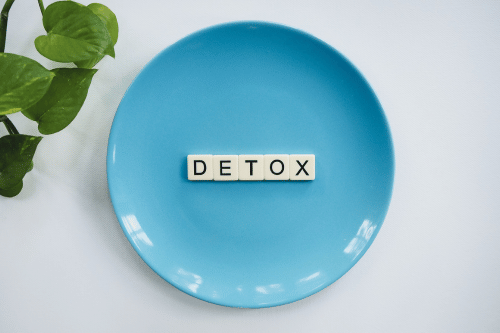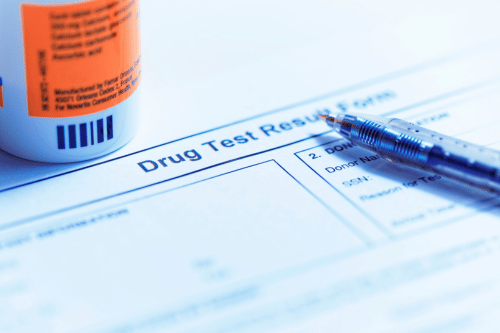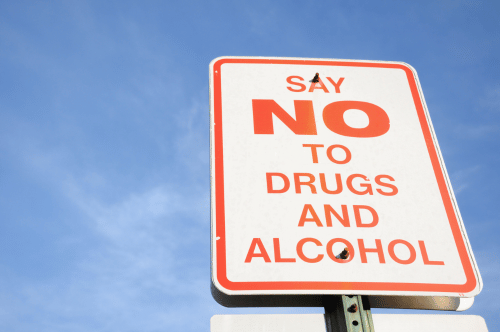

Starting recovery from substance dependence often begins with residential detox. This approach allows a patient to receive round-the-clock medical support in a structured treatment center. At Sullivan Recovery, our detox program focuses on safety, comfort, and preparing clients for long-term sobriety.
Residential detox provides the highest level of residential care for individuals with severe substance abuse. It is especially valuable for those with dual diagnosis who require both psychiatry and addiction-focused care. This setting ensures constant supervision from a physician and trained clinician staff.
The process addresses drug and alcohol withdrawal in a medically monitored environment. Our treatment services include medical detox, drug detox, and medication-assisted detoxification when needed. The structured environment reduces relapse risks during the early days of recovery.
A physician and health care team manage every stage of residential detox. They conduct a full evaluation to determine the safest way to manage withdrawal symptoms. This may involve medications for opioid, opiate, or benzodiazepine withdrawal.
We treat substances including methamphetamine, alprazolam, diazepam, and oxycodone. Our medical staff also helps with co-occurring mental health conditions. The goal is to stabilize the patient before they enter the next phase of treatment.

Medical detox is an essential part of residential detox for individuals with severe substance dependence. This phase involves 24/7 monitoring, medication management, and supportive programs to help clients through withdrawal. Drug detox addresses the physical effects of substance withdrawal, allowing the body to begin healing.
Our detox program is available for those struggling with drug and alcohol misuse. This includes people dependent on opioid, benzodiazepine, or stimulant substances like methamphetamine. We ensure each patient receives individualized treatment.
The withdrawal process varies depending on the substance. Opioid and opiate withdrawal often begins within 8–24 hours after last use and can last up to 10 days. Benzodiazepine withdrawal from drugs like alprazolam or diazepam may last weeks and requires slow, medically guided management.
For methamphetamine, symptoms like fatigue, depression, and anxiety may peak in the first week. Oxycodone withdrawal is similar to other opioid detox timelines, with intense symptoms in the first few days. Our treatment center provides 24/7 monitoring throughout each stage to ensure safety.
During residential detox, we use evaluation and symptom management to ensure safety. Withdrawal symptoms from opioid, opiate, benzodiazepine, and drug use can be intense. Our treatment center uses proven methods and medications to ease discomfort.
Support from a clinician and the healthcare team allows the patient to focus on rest and healing. This care reduces risks like seizures, severe anxiety, or high blood pressure during withdrawal. Each step is part of our medical approach to safe detox.
A residential setting offers more than medical monitoring—it also provides emotional and social support. Peer support helps clients feel less alone during the challenging first days of recovery. Group sessions can address coping skills, relapse prevention, and building a healthy routine.
Our treatment services include structured activities such as meditation, creative expression, and movement-based therapies. These activities help balance emotional stress with physical relaxation. Learning healthy coping skills is essential for lasting sobriety.

Many people wonder how to enter a residential detox program and what the cost will be. Sullivan Recovery works with most insurance providers to make care more affordable. Our admissions team verifies insurance coverage quickly so clients can start treatment without delay.
If insurance is not available, we discuss flexible payment plans. Our mission is to make health care for addiction and mental health accessible to everyone. By removing financial barriers, we help more people access medical detox and treatment services.
After completing residential detox, clients often move into inpatient residential or outpatient care like php or iop. These programs focus on therapy, skill-building, and relapse prevention. This step is critical for people with substance abuse histories to maintain their progress.
Sullivan Recovery offers services such as dialectical behavior therapy to address emotional regulation and relationship challenges. These skills are crucial for building resilience in recovery. A smooth transition between levels of care increases long-term success.
Every patient receives individualized treatment to address their specific needs. We factor in mental health diagnoses, substance type, and overall health. This ensures the detox program is safe, effective, and aligned with long-term recovery goals.
Our treatment center provides management for withdrawal symptoms from opioid, benzodiazepine, and stimulant substances like methamphetamine. We also treat clients with co-occurring conditions using integrated psychiatry and therapy. Each plan supports both the body and mind.
Many clients in residential detox also experience mental health challenges. Our dual diagnosis approach treats both addiction and psychiatric conditions together. This may include therapy, psychiatry, and medications to stabilize mood or reduce anxiety.
We understand that untreated mental health disorders can trigger relapse. By addressing both issues at the same time, clients are better prepared for long-term recovery. Dialectical behavior therapy is one of our tools for improving emotional regulation.

While medications are important, residential detox also benefits from holistic practices. We incorporate meditation, breathing exercises, and guided relaxation to support emotional health. These tools give clients alternative coping methods they can use after treatment.
Holistic care can also involve nutrition guidance, physical movement, and creative activities. These strengthen the mind-body connection during early sobriety. By combining medical and holistic care, we improve overall outcomes.
During residential detox, our physician may prescribe medications for symptom relief. This could include medications for opioid withdrawal, such as buprenorphine or methadone, or for benzodiazepine withdrawal from drugs like alprazolam and diazepam. We also address stimulant withdrawal from methamphetamine.
These medications are part of medical detox and are always combined with evaluation and management by trained staff. The patient is monitored closely to ensure safety. This medical oversight is key to a safe and effective detox program.
Detox is not only physical—it is also an emotional process. We teach healthy coping strategies to replace substance use. This includes stress management, meditation, and peer support groups.
Our treatment services emphasize skill-building for life after residential detox. Clients practice these skills before they start outpatient or inpatient residential programs. This preparation improves long-term recovery outcomes.

Selecting a residential detox program is a crucial decision. Look for a treatment center that offers individualized treatment, integrated mental health care, and 24/7 medical supervision. Ensure the facility treats your specific substance dependence.
Sullivan Recovery offers evidence-based programs that combine medical care, therapy, and peer support. Our healthcare team ensures a safe and supportive environment for every patient. This allows each person to enter recovery with confidence.
Completing residential detox is a major achievement, but the next challenge is maintaining sobriety. At Sullivan Recovery, we teach relapse prevention strategies from day one. This includes identifying triggers, practicing coping skills, and building a strong peer support network.
Our treatment services focus on helping each patient understand the link between substance abuse, stress, and mental health. Through therapy, meditation, and group discussions, clients learn healthier ways to handle life’s challenges. Continuing care after detox greatly reduces the risk of relapse.
After residential detox, many clients transition into structured outpatient care such as php (partial hospitalization program) or iop (intensive outpatient program). PHP provides multiple hours of therapy and medical oversight each day while allowing clients to live at home or in sober housing. IOP offers flexible scheduling for those who are ready for more independence.
Both programs reinforce the skills learned during residential detox. They include therapy methods like dialectical behavior therapy, support groups, and medical management when needed. This ongoing treatment helps clients stay connected to their recovery goals while adjusting to everyday life.
One of our clients came to Sullivan Recovery with severe opioid and benzodiazepine dependence, including daily use of oxycodone and alprazolam. They also faced untreated mental health concerns, making dual diagnosis treatment essential. In our residential care, they received medical detox, 24/7 healthcare, and individualized treatment.
With the help of our physician, clinician, and peer support community, the client completed residential detox and transitioned into inpatient residential treatment. They continued through php and iop, learning coping skills and relapse prevention tools. Today, they are living in sobriety and remain active in recovery support groups.
Residential detox is the first step toward breaking free from addiction. With professional care, a safe environment, and a plan for continued treatment, lasting change is possible. The journey starts with making the decision to seek help.
At Sullivan Recovery, we guide clients from detox to long-term sobriety through comprehensive services. Whether it is medical detox, therapy, or aftercare planning, our focus is on helping every patient succeed. Recovery begins when you are ready to enter a new life.
At Sullivan Recovery, as an in-network provider we work with most insurance plans, such as:
And More
If you or a loved one are struggling with mental health challenges or substance abuse, reach out to Sullivan Recovery today. Our team of compassionate professionals is here to support your journey towards lasting well-being. Give us a call at 949-836-7180.
The length of stay in residential detox depends on the type of substance, the severity of dependence, and the individual’s overall health. Most programs last between 5 and 10 days, though benzodiazepine or opioid detox can require longer supervision. At Sullivan Recovery, each patient receives an individualized treatment timeline based on their needs.
While the focus is on the patient’s recovery, many programs encourage limited family involvement. Families may receive updates, educational resources, or participate in therapy sessions after detox is complete. This involvement helps build stronger support systems for long-term sobriety.
Clients should bring basic clothing, personal hygiene items, and any approved prescriptions in their original bottles. Items such as alcohol, drugs, and unapproved medications are not allowed. Our admissions team at Sullivan Recovery provides a full packing list before entry to ensure a smooth start to treatment.
Residential detox offers a more structured, home-like environment compared to a hospital setting. While both provide medical oversight, residential programs also include therapy, peer support, and activities like meditation. This approach supports both physical stabilization and emotional healing during early recovery.